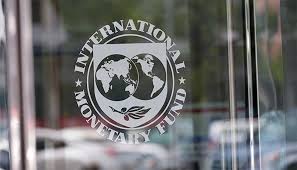The International Monetary Fund has pointed out that exchange rate depreciations contributed to Africa’s rise in public debt by about 10 percentage points of Gross Domestic Product (GDP) on average by end-2022.
According to the Fund, weaker currencies pushed up public debt, with about 40% of public debt external in Sub-Saharan Africa and over 60% of that debt in US dollars for most countries.
Again, it said in an analysis on the theme "African Currencies Are Under Pressure Amid Higher-for-Longer US Interest Rates" that growth and inflation (which reduces the real value of existing debts) helped to contain the public debt increase to about 6% of GDP during the same period.
Continuing, the Fund said “the depreciations across the region were mostly driven by external factors. Lower risk appetite in global markets and interest rate hikes in the United States pushed investors away from the region towards safer and higher paying US treasury bonds”.
“Foreign exchange earnings took a hit in many countries as demand for the region’s exports dropped because of the economic slowdown in major economies. At the same time, high oil and food prices, partly due to Russia’s war in Ukraine, pushed up import costs in 2022”, it explained.
Also, large budget deficits, it stressed, have compounded the effects of these external shocks by increasing the demand for foreign exchange, adding, “About half of the countries in the region had deficits exceeding 5% of GDP in 2022, putting pressure on their exchange rates.
Weaker currencies pushed inflation up
The report said local prices rose when currencies weakened against the US dollar.
“When currencies weaken against the US dollar, local prices rise, as much of what people buy, including essential items like food, are imported”.
It explained that more than two-thirds of imports are priced in US dollars for most countries in the region
Furthermore, it said 1.0 percentage point increase in the rate of depreciation against the US dollar leads, on average, to an increase in inflation of 0.22 percentage points within the first year in the region.
“There is also evidence that inflationary pressures do not come down quickly when local currencies strengthen against the US dollar”.
Fiscal consolidation to help rein external imbalances
Given that the external shocks are expected to persist, the Fund said countries where exchange rates are not pegged (fixed) to a currency have little choice but to let the exchange rate adjust and tighten monetary policy to fight inflation.
However, countries with pegged exchange rates will need to adjust monetary policy in line with the country of the peg.
In both country groups, it concluded that fiscal consolidation can help to rein in external imbalances and limit the increase in debt related to currency depreciation.
Latest Stories
-
Tano Anwia’s concession owner teams up with Forestry Commission to combat galamsey
36 minutes -
Gov’t allocates GH₵490m to Education Ministry
56 minutes -
Tragedy: Nigerian boxer dies after Ghana Pro League bout
1 hour -
Opoku-Agyemang undergoes treatment at UGMC, set to receive further care abroad
4 hours -
The mystery of Bomigo: an island of divine laws, sacred goats, and unwavering traditions
6 hours -
Government’s GH₵ 292.4 million mistake: why free sanitary pads are the problem, not the solution
6 hours -
Crystal Palace beat Fulham to book FA Cup semi-final spot
15 hours -
Forest beat Brighton on penalties to reach FA Cup semi-final
16 hours -
MTN FA Cup 2024/25: Berekum Chelsea book semis slot with win over Bechem United
16 hours -
Gov’t promoting galamsey with GoldBod; the GoldBod is galamsey board – Minority
16 hours -
Ghana Navy probes suspected pirate attack on fishing vessel
17 hours -
2024/25 FA Cup: Attram De Visser stuns PAC Academy to reach first-ever semifinal
17 hours -
‘Shocking and excessive’ – Lawyer challenges $18m verdict in Anas-Kennedy Agyapong case
19 hours -
Parliament approves GH₵2.8bn for road maintenance
19 hours -
Minority Chief Whip raises concerns over ambiguities in Gold Board bill
20 hours

